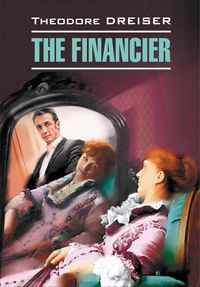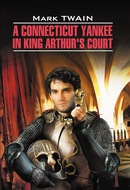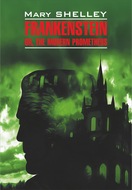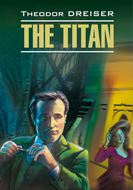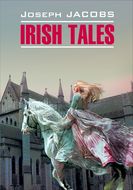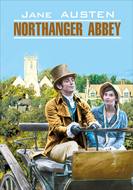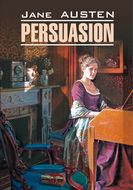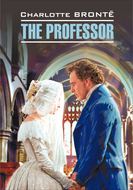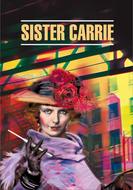Kitobni o'qish: «The Financier / Финансист. Книга для чтения на английском языке»
© КАРО, 2007
Chapter I
The Philadelphia into which Frank Algernon Cowperwood was born was a city of two hundred and fifty thousand and more. It was set with handsome parks, notable buildings, and crowded with historic memories. Many of the things that we and he knew later were not then in existence – the telegraph, telephone, express company, ocean steamer, city delivery of mails. There were no postage-stamps or registered letters. The street car had not arrived. In its place were hosts of omnibuses, and for longer travel the slowly developing railroad system still largely connected by canals.
Cowperwood’s father was a bank clerk at the time of Frank’s birth, but ten years later, when the boy was already beginning to turn a very sensible, vigorous eye on the world, Mr.Henry Worthington Cowperwood, because of the death of the bank’s president and the consequent moving ahead of the other officers, fell heir to the place vacated by the promoted teller, at the, to him, munificent salary of thirty-five hundred dollars a year. At once he decided, as he told his wife joyously, to remove his family from 21 Buttonwood Street to 124 New Market Street, a much better neighborhood, where there was a nice brick house of three stories in height as opposed to their present two-storied domicile. There was the probability that some day they would come into something even better, but for the present this was sufficient. He was exceedingly grateful.
Henry Worthington Cowperwood was a man who believed only what he saw and was content to be what he was – a banker, or a prospective one. He was at this time a significant figure – tall, lean, inquisitorial, clerkly – with nice, smooth, closely-cropped side whiskers coming to almost the lower lobes of his ears. His upper lip was smooth and curiously long, and he had a long, straight nose and a chin that tended to be pointed. His eyebrows were bushy, emphasizing vague, grayish-green eyes, and his hair was short and smooth and nicely parted. He wore a frock-coat always – it was quite the thing in financial circles in those days – and a high hat. And he kept his hands and nails immaculately clean. His manner might have been called severe, though really it was more cultivated than austere.
Being ambitious to get ahead socially and financially, he was very careful of whom or with whom he talked. He was as much afraid of expressing a rabid or unpopular political or social opinion as he was of being seen with an evil character, though he had really no opinion of great political significance to express. He was neither anti-nor pro-slavery, though the air was stormy with abolition sentiment and its opposition. He believed sincerely that vast fortunes were to be made out of railroads if one only had the capital and that curious thing, a magnetic personality – the ability to win the confidence of others. He was sure that Andrew Jackson was all wrong in his opposition to Nicholas Biddle and the United States Bank1, one of the great issues of the day; and he was worried, as he might well be, by the perfect storm of wildcat money2 which was floating about and which was constantly coming to his bank – discounted, of course, and handed out again to anxious borrowers at a profit. His bank was the Third National of Philadelphia, located in that center of all Philadelphia and indeed, at that time, of practically all national finance – Third Street – and its owners conducted a brokerage business as a side line3. There was a perfect plague of State banks, great and small, in those days, issuing notes practically without regulation upon insecure and unknown assets and failing and suspending with astonishing rapidity; and a knowledge of all these was an important requirement of Mr. Cowperwood’s position. As a result, he had become the soul of caution. Unfortunately, for him, he lacked in a great measure the two things that are necessary for distinction in any field – magnetism and vision. He was not destined to be a great financier, though he was marked out to be a moderately successful one.
Mrs. Cowperwood was of a religious temperament – a small woman, with light-brown hair and clear, brown eyes, who had been very attractive in her day, but had become rather prim and matter-of-fact and inclined to take very seriously the maternal care of her three sons and one daughter. The former, captained by Frank, the eldest, were a source of considerable annoyance to her, for they were forever making expeditions to different parts of the city, getting in with bad boys, probably, and seeing and hearing things they should neither see nor hear.
Frank Cowperwood, even at ten, was a natural-born leader. At the day school he attended, and later at the Central High School, he was looked upon as one whose common sense could unquestionably be trusted in all cases. He was a sturdy youth, courageous and defiant. From the very start of his life, he wanted to know about economics and politics. He cared nothing for books. He was a clean, stalky, shapely boy, with a bright, clean-cut, incisive face; large, clear, gray eyes; a wide forehead; short, bristly, dark-brown hair. He had an incisive, quick-motioned, self-sufficient manner, and was forever asking questions with a keen desire for an intelligent reply. He never had an ache or pain, ate his food with gusto, and ruled his brothers with a rod of iron. “Come on, Joe!”
“Hurry, Ed!” These commands were issued in no rough but always a sure way, and Joe and Ed came. They looked up to Frank from the first as a master, and what he had to say was listened to eagerly.
He was forever pondering, pondering – one fact astonishing him quite as much as another – for he could not figure out how this thing he had come into – this life – was organized. How did all these people get into the world? What were they doing here? Who started things, anyhow? His mother told him the story of Adam and Eve, but he didn’t believe it. There was a fish-market not so very far from his home, and there, on his way to see his father at the bank, or conducting his brothers on after-school expeditions, he liked to look at a certain tank in front of one store where were kept odd specimens of sea-life brought in by the Delaware Bay fishermen. He saw once there a sea-horse – just a queer little sea-animal that looked somewhat like a horse – and another time he saw an electric eel which Benjamin Franklin’s discovery had explained. One day he saw a squid and a lobster put in the tank, and in connection with them was witness to a tragedy which stayed with him all his life and cleared things up considerably intellectually. The lobster, it appeared from the talk of the idle bystanders, was offered no food, as the squid was considered his rightful prey. He lay at the bottom of the clear glass tank on the yellow sand, apparently seeing nothing – you could not tell in which way his beady, black buttons of eyes were looking – but apparently they were never off the body of the squid. The latter, pale and waxy in texture, looking very much like pork fat or jade, moved about in torpedo fashion; but his movements were apparently never out of the eyes of his enemy, for by degrees small portions of his body began to disappear, snapped off by the relentless claws of his pursuer. The lobster would leap like a catapult to where the squid was apparently idly dreaming, and the squid, very alert, would dart away, shooting out at the same time a cloud of ink, behind which it would disappear. It was not always completely successful, however. Small portions of its body or its tail were frequently left in the claws of the monster below. Fascinated by the drama, young Cowperwood came daily to watch.
One morning he stood in front of the tank, his nose almost pressed to the glass. Only a portion of the squid remained, and his ink-bag was emptier than ever. In the corner of the tank sat the lobster, poised apparently for action.
The boy stayed as long as he could, the bitter struggle fascinating him. Now, maybe, or in an hour or a day, the squid might die, slain by the lobster, and the lobster would eat him. He looked again at the greenish-copperish engine of destruction in the corner and wondered when this would be. Tonight, maybe. He would come back to-night.
He returned that night, and lo! the expected had happened. There was a little crowd around the tank. The lobster was in the corner. Before him was the squid cut in two and partially devoured.
“He got him at last,” observed one bystander. “I was standing right here an hour ago, and up he leaped and grabbed him. The squid was too tired. He wasn’t quick enough. He did back up, but that lobster he calculated on his doing that. He’s been figuring on his movements for a long time now. He got him to-day.”
Frank only stared. Too bad he had missed this. The least touch of sorrow for the squid came to him as he stared at it slain. Then he gazed at the victor.
“That’s the way it has to be, I guess,” he commented to himself. “That squid wasn’t quick enough.” He figured it out.
“The squid couldn’t kill the lobster – he had no weapon. The lobster could kill the squid – he was heavily armed. There was nothing for the squid to feed on; the lobster had the squid as prey. What was the result to be? What else could it be? He didn’t have a chance,” he concluded finally, as he trotted on homeward.
The incident made a great impression on him. It answered in a rough way that riddle which had been annoying him so much in the past: “How is life organized?” Things lived on each other – that was it. Lobsters lived on squids and other things. What lived on lobsters? Men, of course!
Sure, that was it! And what lived on men? he asked himself. Was it other men? Wild animals lived on men. And there were Indians and cannibals.
And some men were killed by storms and accidents. He wasn’t so sure about men living on men; but men did kill each other. How about wars and street fights and mobs? He had seen a mob once. It attacked the Public Ledger building as he was coming home from school. His father had explained why. It was about the slaves. That was it! Sure, men lived on men. Look at the slaves. They were men. That’s what all this excitement was about these days. Men killing other men – negroes.
He went on home quite pleased with himself at his solution. <…>
But for days and weeks Frank thought of this and of the life he was tossed into, for he was already pondering on what he should be in this world, and how he should get along. From seeing his father count money, he was sure that he would like banking; and Third Street, where his father’s office was, seemed to him the cleanest, most fascinating street in the world.
Chapter II
The growth of young Frank Algernon Cowperwood was through years of what might be called a comfortable and happy family existence. Buttonwood Street, where he spent the first ten years of his life, was a lovely place for a boy to live. It contained mostly small two and three-story red brick houses, with small white marble steps leading up to the front door, and thin, white marble trimmings outlining the front door and windows. There were trees in the street – plenty of them. The road pavement was of big, round cobblestones, made bright and clean by the rains; and the sidewalks were of red brick, and always damp and cool. In the rear was a yard, with trees and grass and sometimes flowers, for the lots were almost always one hundred feet deep, and the house-fronts, crowding close to the pavement in front, left a comfortable space in the rear.
The Cowperwoods, father and mother, were not so lean and narrow that they could not enter into the natural tendency to be happy and joyous with their children; and so this family, which increased at the rate of a child every two or three years after Frank’s birth until there were four children, was quite an interesting affair when he was ten and they were ready to move into the New Market Street home. Henry Worthington Cowperwood’s connections were increased as his position grew more responsible, and gradually he was becoming quite a personage. He already knew a number of the more prosperous merchants who dealt with his bank, and because as a clerk his duties necessitated his calling at other banking-houses, he had come to be familiar with and favorably known in the Bank of the United States, the Drexels, the Edwards, and others. The brokers knew him as representing a very sound organization, and while he was not considered brilliant mentally, he was known as a most reliable and trustworthy individual.
In this progress of his father young Cowperwood definitely shared. He was quite often allowed to come to the bank on Saturdays, when he would watch with great interest the deft exchange of bills at the brokerage end of the business4. He wanted to know where all the types of money came from, why discounts were demanded and received, what the men did with all the money they received. His father, pleased at his interest, was glad to explain so that even at this early age – from ten to fifteen – the boy gained a wide knowledge of the condition of the country financially – what a State bank was and what a national one; what brokers did; what stocks were, and why they fluctuated in value. He began to see clearly what was meant by money as a medium of exchange, and how all values were calculated according to one primary value, that of gold.
He was a financier by instinct, and all the knowledge that pertained to that great art was as natural to him as the emotions and subtleties of life are to a poet. This medium of exchange, gold, interested him intensely. When his father explained to him how it was mined, he dreamed that he owned a gold mine and waked to wish that he did. He was likewise curious about stocks and bonds and he learned that some stocks and bonds were not worth the paper they were written on, and that others were worth much more than their face value indicated.
“There, my son,” said his father to him one day, “you won’t often see a bundle of those around this neighborhood.” He referred to a series of shares in the British East India Company, deposited as collateral at two-thirds of their face value for a loan of one hundred thousand dollars5. A Philadelphia magnate had hypothecated them for the use of the ready cash. Young Cowperwood looked at them curiously. “They don’t look like much, do they?” he commented.
“They are worth just four times their face value,” said his father, archly.
Frank reexamined them. “The British East India Company,” he read. “Ten pounds – that’s pretty near fifty dollars.”
“Forty-eight, thirty-five,” commented his father, dryly. “Well, if we had a bundle of those we wouldn’t need to work very hard. You’ll notice there are scarcely any pin-marks on them. They aren’t sent around very much. I don’t suppose these have ever been used as collateral before.”
Young Cowperwood gave them back after a time, but not without a keen sense of the vast ramifications of finance. What was the East India Company? What did it do? His father told him.
At home also he listened to considerable talk of financial investment and adventure. He heard, for one thing, of a curious character by the name of Steemberger, a great beef speculator from Virginia, who was attracted to Philadelphia in those days by the hope of large and easy credits. Steemberger, so his father said, was close to Nicholas Biddle, Lardner, and others of the United States Bank, or at least friendly with them, and seemed to be able to obtain from that organization nearly all that he asked for. His operations in the purchase of cattle in Virginia, Ohio, and other States were vast, amounting, in fact, to an entire monopoly of the business of supplying beef to Eastern cities. He was a big man, enormous, with a face, his father said, something like that of a pig; and he wore a high beaver hat and a long frock-coat which hung loosely about his big chest and stomach. He had managed to force the price of beef up to thirty cents a pound, causing all the retailers and consumers to rebel, and this was what made him so conspicuous. He used to come to the brokerage end of the elder Cowperwood’s bank, with as much as one hundred thousand or two hundred thousand dollars, in twelve months post-notes6 of the United States Bank in denominations of one thousand, five thousand, and ten thousand dollars. These he would cash at from ten to twelve per cent. under their face value, having previously given the United States Bank his own note at four months for the entire amount. He would take his pay from the Third National brokerage counter in packages of Virginia, Ohio, and western Pennsylvania bank-notes at par, because he made his disbursements principally in those States. The Third National would in the first place realize a profit of from four to five per cent. on the original transaction; and as it took the Western bank-notes at a discount, it also made a profit on those.
There was another man his father talked about – one Francis J. Grund, a famous newspaper correspondent and lobbyist at Washington, who possessed the faculty of unearthing secrets of every kind, especially those relating to financial legislation. The secrets of the President and the Cabinet, as well as of the Senate and the House of Representatives, seemed to be open to him. Grund had been about, years before, purchasing through one or two brokers large amounts of the various kinds of Texas debt certificates and bonds. The Republic of Texas7, in its struggle for independence from Mexico, had issued bonds and certificates in great variety, amounting in value to ten or fifteen million dollars. Later, in connection with the scheme to make Texas a State of the Union, a bill was passed providing a contribution on the part of the United States of five million dollars, to be applied to the extinguishment of this old debt. Grund knew of this, and also of the fact that some of this debt, owing to the peculiar conditions of issue, was to be paid in full, while other portions were to be scaled down, and there was to be a false or pre-arranged failure to pass the bill at one session in order to frighten off the outsiders who might have heard and begun to buy the old certificates for profit. He acquainted the Third National Bank with this fact, and of course the information came to Cowperwood as teller. He told his wife about it, and so his son, in this roundabout way, heard it, and his clear, big eyes glistened. He wondered why his father did not take advantage of the situation and buy some Texas certificates for himself. Grund, so his father said, and possibly three or four others, had made over a hundred thousand dollars apiece. It wasn’t exactly legitimate, he seemed to think, and yet it was, too. Why shouldn’t such inside information be rewarded? Somehow, Frank realized that his father was too honest, too cautious, but when he grew up, he told himself, he was going to be a broker, or a financier, or a banker, and do some of these things.
Just at this time there came to the Cowperwoods an uncle who had not previously appeared in the life of the family. He was a brother of Mrs. Cowperwood’s – Seneca Davis by name – solid, unctuous, five feet ten in height, with a big, round body, a round, smooth head rather bald, a clear, ruddy complexion, blue eyes, and what little hair he had of a sandy hue. He was exceedingly well dressed according to standards prevailing in those days, indulging in flowered waistcoats, long, light-colored frock-coats, and the invariable (for a fairly prosperous man) high hat. Frank was fascinated by him at once. He had been a planter in Cuba and still owned a big ranch there and could tell him tales of Cuban life – rebellions, ambuscades, hand-to-hand fighting with machetes on his own plantation, and things of that sort. He brought with him a collection of Indian curies8, to say nothing of an independent fortune and several slaves – one, named Manuel, a tall, raw-boned black, was his constant attendant, a body-servant, as it were. He shipped raw sugar from his plantation in boat-loads to the Southwark wharves in Philadelphia. Frank liked him because he took life in a hearty, jovial way, rather rough and offhand for this somewhat quiet and reserved household.
“Why, Nancy Arabella,” he said to Mrs. Cowperwood on arriving one Sunday afternoon, and throwing the household into joyous astonishment at his unexpected and unheralded appearance, “you haven’t grown an inch! I thought when you married old brother Hy here that you were going to fatten up like your brother. But look at you! I swear to Heaven you don’t weigh five pounds.” And he jounced her up and down by the waist, much to the perturbation of the children, who had never before seen their mother so familiarly handled.
Henry Cowperwood was exceedingly interested in and pleased at the arrival of this rather prosperous relative; for twelve years before, when he was married, Seneca Davis had not taken much notice of him.
“Look at these little putty-faced Philadelphians,” he continued. “They ought to come down to my ranch in Cuba and get tanned up. That would take away this waxy look.” And he pinched the cheek of Anna Adelaide, now five years old. “I tell you, Henry, you have a rather nice place here.” And he looked at the main room of the rather conventional three-story house with a critical eye.
Measuring twenty by twenty-four and finished in imitation cherry, with a set of new Sheraton parlor furniture9 it presented a quaintly harmonious aspect. Since Henry had become teller the family had acquired a piano – a decided luxury in those days – brought from Europe; and it was intended that Anna Adelaide, when she was old enough, should learn to play. There were a few uncommon ornaments in the room – a gas chandelier for one thing, a glass bowl with goldfish in it, some rare and highly polished shells, and a marble Cupid bearing a basket of flowers. It was summer time, the windows were open, and the trees outside, with their widely extended green branches, were pleasantly visible shading the brick sidewalk. Uncle Seneca strolled out into the back yard.
“Well, this is pleasant enough,” he observed, noting a large elm and seeing that the yard was partially paved with brick and enclosed within brick walls, up the sides of which vines were climbing. “Where’s your hammock? Don’t you string a hammock here in summer? Down on my veranda at San Pedro I have six or seven.”
“We hadn’t thought of putting one up because of the neighbors, but it would be nice,” agreed Mrs. Cowperwood. “Henry will have to get one.”
“I have two or three in my trunks over at the hotel. My niggers make ’em down there. I’ll send Manuel over with them in the morning.”
He plucked at the vines, tweaked Edward’s ear, told Joseph, the second boy, he would bring him an Indian tomahawk, and went back into the house.
“This is the lad that interests me,” he said, after a time, laying a hand on the shoulder of Frank. “What did you name him in full, Henry?”
“Frank Algernon.”
“Well, you might have named him after me. There’s something to this boy.
How would you like to come down to Cuba and be a planter, my boy?”
“I’m not so sure that I’d like to,” replied the eldest.
“Well, that’s straight-spoken. What have you against it?”
“Nothing, except that I don’t know anything about it.”
“What do you know?”
The boy smiled wisely. “Not very much, I guess.”
“Well, what are you interested in?”
“Money!”
“Aha! What’s bred in the bone, eh?10 Get something of that from your father, eh? Well, that’s a good trait. And spoken like a man, too! We’ll hear more about that later. Nancy, you’re breeding a financier here, I think. He talks like one.”
He looked at Frank carefully now. There was real force in that sturdy young body – no doubt of it. Those large, clear gray eyes were full of intelligence. They indicated much and revealed nothing.
“A smart boy!” he said to Henry, his brother-in-law. “I like his get-up. You have a bright family.”
Henry Cowperwood smiled dryly. This man, if he liked Frank, might do much for the boy. He might eventually leave him some of his fortune. He was wealthy and single.
Uncle Seneca became a frequent visitor to the house – he and his negro body-guard, Manuel, who spoke both English and Spanish, much to the astonishment of the children; and he took an increasing interest in Frank.
“When that boy gets old enough to find out what he wants to do, I think I’ll help him to do it,” he observed to his sister one day; and she told him she was very grateful. He talked to Frank about his studies, and found that he cared little for books or most of the study he was compelled to pursue. Grammar was an abomination. Literature silly. Latin was of no use. History – well, it was fairly interesting.
“I like bookkeeping and arithmetic,” he observed. “I want to get out and get to work, though. That’s what I want to do.”
“You’re pretty young, my son,” observed his uncle. “You’re only how old now? Fourteen?”
“Thirteen.”
“Well, you can’t leave school much before sixteen. You’ll do better if you stay until seventeen or eighteen. It can’t do you any harm. You won’t be a boy again.”
“I don’t want to be a boy. I want to get to work.”
“Don’t go too fast, son. You’ll be a man soon enough. You want to be a banker, do you?”
“Yes, sir!”
“Well, when the time comes, if everything is all right and you’ve behaved yourself and you still want to, I’ll help you get a start in business. If I were you and were going to be a banker, I’d first spend a year or so in some good grain and commission house. There’s good training to be had there. You’ll learn a lot that you ought to know. And, meantime, keep your health and learn all you can. Wherever I am, you let me know, and I’ll write and find out how you’ve been conducting yourself.”
He gave the boy a ten-dollar gold piece11 with which to start a bank-account. And, not strange to say, he liked the whole Cowperwood household much better for this dynamic, self-sufficient, sterling youth who was an integral part of it.
